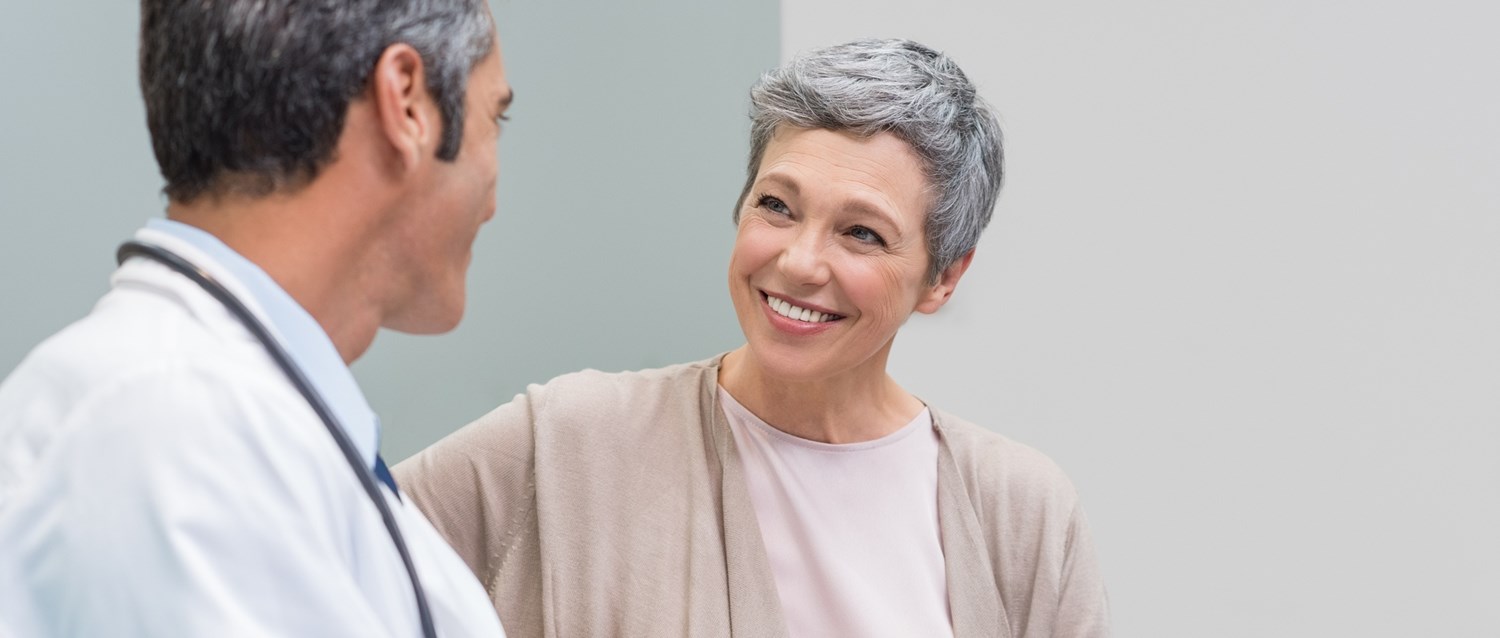
How can you prevent osteoporosis during the menopause?
Peer reviewed by Dr Colin Tidy, MRCGPLast updated by Lawrence HigginsLast updated 4 Feb 2026
Meets Patient’s editorial guidelines
- DownloadDownload
- Share
- Language
- Discussion
- Audio Version
Menopause increases your chance of having osteoporosis - which weakens your bones and may cause them to fracture easily. This is because menopause causes oestrogen - the hormone that protects bones - levels to drop. We look at how to lower your chances of getting osteoporosis.
Sign up for our free 10-week Menopause course!
Each week, we'll explore different topics to help you better understand and navigate your menopausal journey, including HRT, diet, exercise, and mental health.
By subscribing you accept our Privacy Policy. You can unsubscribe at any time. We never sell your data.
In this article:
Continue reading below
What is osteoporosis?
Helen O'Leary, physiotherapist and director of Complete Pilates, says that you can have osteoporosis in one area of your body, but not another. Therefore, you will usually have both your hip and lumbar spine assessed and may find that one is osteoporotic and the other not.
Osteoporosis is diagnosed by the results of a DXA scan, which assesses your bone mineral density. DXA scanning may be recommended if you previously had a broken bone from a minor injury, to see if low bone density has contributed to your fracturing. It may also be done if you have an X-ray and the doctor thinks that the bones look like they may have reduced density.
Another reason to be assessed is if you are in a high-risk group due to family history, medical history, or medicines that you are taking.
"The important thing to remember with osteoporosis is that the risk of fracture is as osteoporosis is a silent condition and does not affect you until you break a bone. It is the outcome of fractures which affect quality of life, particularly as we get older," says O'Leary.
Osteoporosis symptoms
Back to contentsOsteoporosis is described as a silent disease, meaning there are no visible symptoms that could help you identify the condition. Pain will only be felt if there are breaks in a bone.
However, O’Leary says that, if you have had osteoporosis for some time and have had spinal fractures, it is common to lose height as the bones in the back become thinner. This can also affect your posture, causing an increased curve in the spine, as well as leading to back pain.
Continue reading below
The link between menopause and osteoporosis
Back to contentsIt has been shown that up to 20% of bone loss occurs during the menopause, due to the reduction in oestrogen levels. This puts those going through the menopause and after menopause at a higher risk of osteoporosis.
How to prevent osteoporosis in menopause
Back to contents"We can't necessarily prevent osteoporosis in menopause as it depends on so many different factors. However, there are various things we can do to reduce the risk of osteoporosis in menopause and, importantly, reduce the risk of breaking a bone," O’Leary says.
Exercise is recommended for reducing your risk of breaking a bone, but it must be done safely.
Exercise regularly - follow the government guidelines of 150 minutes per week.
Exercise should include 2-3 sessions per week that are using weights, body weight, or resistance exercise.
Exercise should include balance training to reduce the chance of falls.
The protective element specific to osteoporosis is impact. This means running, jumping, skipping, dancing, hopping, and basically anything that gives impact to the bones can help stimulate bone development.
The specific exercises that are good for you will depend on your diagnosis, your medical history and current exercise profile. This is something that should be advised on by an exercise professional who specialises in osteoporosis, such as a physiotherapist.
Other steps you can take to reduce your risk of bone breakage
Ensure you have a consistent balanced diet with enough calcium. It is generally advised to have 1,300 mg per day.
Ensure you have enough vitamin D. The UK government recommends that everyone in the UK consider taking a daily 10 microgram (400 IU) vitamin D supplement during the autumn and winter months (October to March).
Reduce your alcohol intake.
HRT and osteoporosis
Taking hormone replacement therapy (HRT) reduces your risk of osteoporosis. If you go through premature menopause - before the age of 40 - your risk of osteoporosis is much higher than average. It is likely that your doctor will recommend that you take HRT until at least the age of 51, which is the average age women go through menopause. They may make the same recommendation if you go through 'early menopause' - between the ages of 40 and 44.
HRT can also be helpful in relieving menopausal symptoms - your doctor will discuss the risks and benefits with you.
Continue reading below
Can you reverse osteoporosis after menopause?
Back to contentsO'Leary says you are unlikely to increase your bone density after menopause without taking bone-building medicines - and even these will often only delay or halt decline in bone density. These are only prescribed on diagnosis of osteoporosis and under the guidance of your GP or rheumatologist.
"Our bone density is built up in puberty and through our life until around the age of 30. At this stage it starts to reduce, with a more rapid decline at menopause. The biggest changes can be made in puberty, which is why it is important to encourage teenage girls to exercise and eat healthily. We then have a bigger deposit in our 'bone bank' so that, as we lose bone density, we hopefully do not fall into the osteoporosis range."
However, it is absolutely possible to reduce your risk of breaking a bone by using the methods above.
When should I see a doctor for osteoporosis?
Back to contents"If you break a bone from what seems like a minor injury, it is very important to follow up with a bone density scan to check that osteoporosis is not a factor," O'Leary stresses.
"If you have been taking medicines that can cause bone loss - such as prolonged steroids or certain types of cancer drugs - then it will usually be recommended that you have a DXA scan."
Also, you should speak to your doctor about a DXA scan if you have risk factors for osteoporosis. These include:
Having a body mass index (BMI) under 18.5.
Having gone through the menopause before the age of 45.
A history of your periods stopping for at least 6-12 months before you went through menopause.
Having a parent or sibling with a history of osteoporosis.
Being very immobile.
Certain medical conditions such as coeliac disease, Crohn's disease, overactive thyroid gland, Cushing's syndrome, chronic kidney disease, type 1 diabetes, chronic liver disease, or rheumatoid arthritis.
Drinking more than two units a day of alcohol, as well as smoking, also increase your risk of osteoporosis.
There are drug treatments available that either build bones or slow the breakdown of bones which will be recommended for you. It is a good idea to see a rheumatologist who specialises in bone health to manage your care.
It is also a good idea to speak to an exercise professional who specialises in bone health to design a bespoke exercise programme for you.
Lastly, a dietician can be really helpful in ensuring you are getting all the nutrients you need to support your bone health and the rest of your body systems through the menopause.
Patient picks for Menopause and HRT

Hormones
Looking after your health during the menopause
The menopause is a normal part of life, but that doesn't mean it's an easy process. Not everyone gets hot flushes, night sweats and vaginal dryness, and some women breeze through this natural phase in their lives - but some of us need a little extra help.
by Lydia Smith

Hormones
Do you need a menopause check at 40?
In the UK, the Menopause All-Party Parliamentary Group (APPG) has suggested seven reforms to UK menopause health policy that it recommends should be implemented by MPs. One of the key recommendations is that a standard menopause check should be integrated into the NHS free Health Check for all women over 40. Here we look at if this check is necessary, what it would it entail, and why the age of 40 has been chosen.
by Amberley Davis
Article history
The information on this page is peer reviewed by qualified clinicians.
Next review due: 5 Feb 2029
4 Feb 2026 | Latest version
18 Oct 2021 | Originally published
Authored by:
Emily Jane Bashforth

Ask, share, connect.
Browse discussions, ask questions, and share experiences across hundreds of health topics.

Feeling unwell?
Assess your symptoms online for free
Sign up to the Patient newsletter
Your weekly dose of clear, trustworthy health advice - written to help you feel informed, confident and in control.
By subscribing you accept our Privacy Policy. You can unsubscribe at any time. We never sell your data.